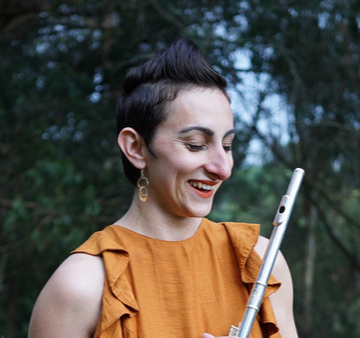Taking Croatian and Modern Greek Language Lessons: a Perspective of a Heritage Speaker in America
- Ellie Falaris Ganelin

- Oct 23, 2025
- 3 min read
Updated: Oct 23, 2025
My dad likes to say that after moving to the United States and starting a family, he chose to speak Greek with me and my younger brother so that he would have conversation partners in his native language. Even my mom, a native English speaker of Croatian parents, spoke Croatian* to me when I was little. When I was three, a dinner guest at our home observed with admiration as I requested a pre-dinner cookie from both dad (“Θέλω ένα κουλουράκι”) and mom (“želim keks”). It turns out knowing how to ask for something in one’s respective language can be rewarded :-)
As an adult, I’ve come to appreciate what a gift it was to grow up multilingual. For a number of years, I decided to level up my grammar and literacy in Modern Greek by taking Modern Greek language lessons in both classroom and one-on-one settings. The goal has been to ultimately speak Greek with my own kids, teaching it the same way I learned it from my dad. As my mom and I are both native English speakers, I understand firsthand the challenges that she faced trying to speak Croatian to me growing up, and why she eventually switched to speaking English exclusively.

It’s really why I committed to improving my Greek so that I could more comfortably and correctly express myself in the language. I’ll admit that my communication is sometimes messy, or I have to look up a word, or I switch to using English when necessary. But knowing that my kids are getting a foundation in a language that my dad passed onto me feels like a worthy endeavor. It turns out that being exposed to multiple languages when you’re young wires your brain differently than in a monolingual kids.
My kids, now in elementary school, sometimes ask why I speak Greek to them rather than the dominant English, to which, I reply: “Ποια άλλη θα σου μάθει Ελληνικά;” (“Who else will teach you Greek?”).
In my professional life, I’m the director of the Kombos Collective, a music organization that celebrates the Hellenic World. The better my Greek is, the easier and more enjoyable it is to do things like translate song lyrics and conduct background research for my programs. I’ve also found that speaking the language well increases my credibility with both professional contacts and audience members. In a couple of my collaborations, I’ve also offered Greek pronunciation coaching to singers.
Ene of my latest Kombos projects is called Vardari, which explores shared Greek and Balkan melodies. It’s a multifaceted effort that has involved researching, arranging, and singing the same folk songs that exist in many languages. In the same way that I offered coaching in Greek, I have sought out pronunciation coaching from relatives, friends, and colleagues in other languages: Albanian, Armenian, Bosnian-Croatian-Serbian (BCS)*, Bulgarian/N. Macedonian, Romanian, and Turkish. My great-grandparents, who were Ottoman subjects in the city of Monastiri (modern-day Bitola in N. Macedonia) spoke five languages. My goal has been to walk in their footsteps by singing in some of the same languages that they spoke.
In the process of doing outreach for Vardari, I came into contact with the South Slavic Studies program at the University of California, Berkeley. In addition to public lectures, they offer several BCS language courses — making it one of the few universities in the country that teach in-person classes in the language. Since the fall, I’ve been enrolled in their beginning BCS language classes. Professionally, this means that I’m starting to really understand the lyrics that I’m singing for Vardari. And on a personal level, I finally get to learn my mother’s language, which I haven’t spoken since I was very young. It’s truly a full-circle moment.
Learning Heritage Languages: a Perspective of a Croatian-Greek-American
*Bosnian-Croatian-Serbian (BCS) is the accepted term for this South Slavic language. I grew up calling it Croatian, or Serbo-Croatian, which is how I refer to it at the beginning of this narrative. People sometimes refer to Serbian, Bosnian and Croatian as though they’re different languages. But really, BCS is one language with several regional dialects or variants.




Comments